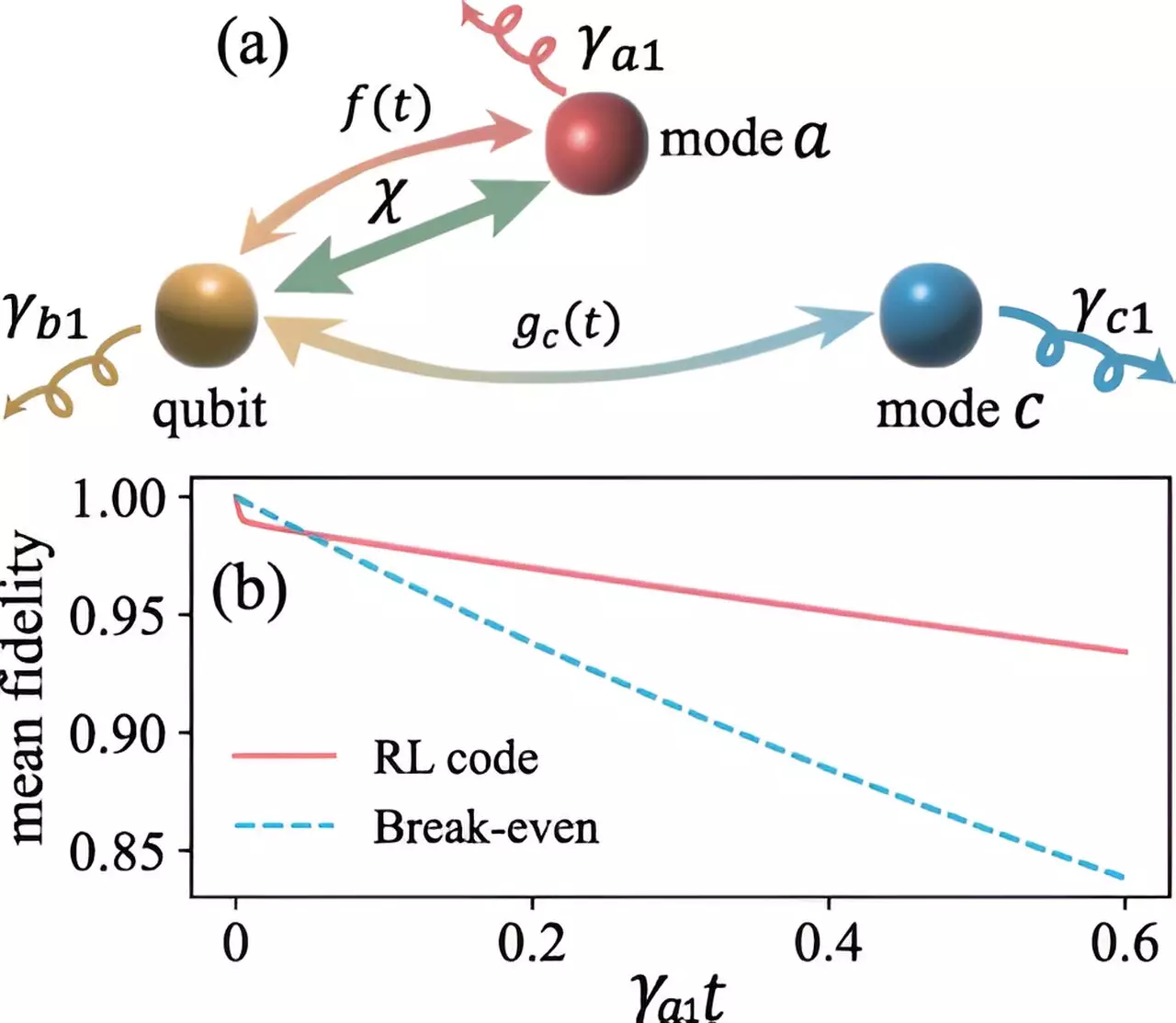Quantum computers have the potential to revolutionize the field of computing, with their ability to perform complex operations that classical computers simply cannot handle. However, one of the biggest hurdles in making quantum computers practical is the vulnerability of quantum superpositions to errors. Researchers at the RIKEN Center for Quantum Computing have taken a significant step towards overcoming this obstacle by using machine learning algorithms to perform error correction for quantum computers.
Unlike classical computers that operate on binary bits (0s and 1s), quantum computers use “qubits” that can exist in a superposition of both 0 and 1 states. This unique characteristic, coupled with quantum entanglement, allows quantum computers to perform new operations and potentially outperform classical computers in certain computational tasks. However, the fragility of quantum superpositions makes error correction a critical component in quantum computing.
Sophisticated methods for quantum error correction have been developed, but they often come with a significant increase in device complexity, which itself introduces errors. This has hindered full-fledged error correction in quantum computers. The RIKEN researchers aimed to alleviate this issue by leveraging machine learning to find error correction schemes that minimize device complexity while maintaining good error correcting performance.
In their study, the researchers focused on an autonomous approach to quantum error correction. They designed an artificial environment that replaces the need for frequent error-detecting measurements. By applying reinforcement learning, an advanced machine learning technique, the researchers trained an agent to explore and optimize its action policy within the environment.
The researchers specifically looked at “bosonic qubit encodings,” which are utilized in some of the most promising quantum computing machines based on superconducting circuits. Finding high-performing bosonic qubit encodings is a complex optimization task, and machine learning proved to be a valuable tool in this search.
Through their machine learning approach, the researchers discovered a simple yet effective qubit encoding that not only reduced device complexity compared to other encodings but also outperformed its competitors in error correction capabilities. This finding is promising, as it brings us closer to the successful implementation of quantum error correction in experiments.
Lead author Yexiong Zeng expressed enthusiasm about the potential of machine learning in quantum error correction, stating that their work could demonstrate the practical deployment of machine learning techniques in this field. Franco Nori, a prominent researcher in the field, emphasized the pivotal role of machine learning in addressing the challenges of large-scale quantum computation and optimization.
The integration of machine learning and quantum error correction represents a significant step forward in the development of practical quantum computers. By leveraging machine learning algorithms, researchers at the RIKEN Center for Quantum Computing have overcome the limitations of traditional error correction methods, reducing device complexity while improving error correcting performance.
While challenges remain in the implementation of quantum error correction in experiments, this research opens up new possibilities for the field. Machine learning, artificial neural networks, and quantum fault tolerance are set to play pivotal roles in the advancement of large-scale quantum computation.
As the world continues to embrace the potential of quantum computing, the combination of machine learning and quantum error correction gives us hope that practical quantum computers are within reach. It is an exciting time for the field, as researchers push the boundaries of what is possible and pave the way for a future where quantum computers are a reality.


Leave a Reply